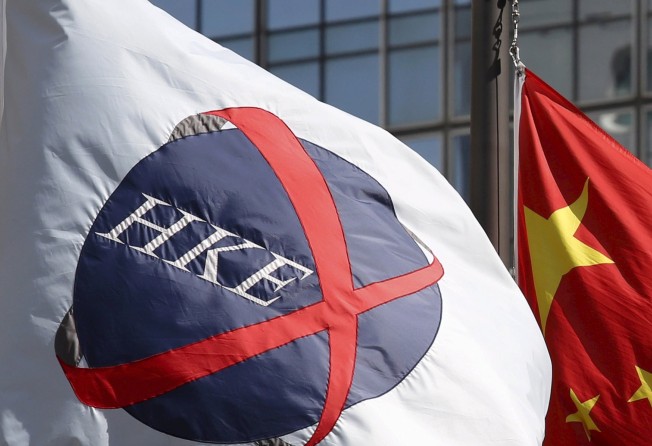
Securities watchdog’s retreat on new share listings paves way for dual-class shares
The lack of a dual-class option in Hong Kong is largely credited with Alibaba’s opting for Wall Street to list in 2014

The Securities and Futures Commission, Hong Kong’s stock market industry watchdog, will not be taking a front-row seat in new listing approvals, meaning the city can now push ahead with plans to launch a new market for dual-class shares in an effort top lure technology companies in particular to list here, according to brokers.
“The retreat by the SFC from taking a frontline role in approving new listings means HKEX (Hong Kong Exchanges and Clearing) and the listing committee can continue to share the task,” said Christopher Cheung Wah-fung, a local broker who is also the lawmaker representing the sector.
“This is positive for the HKEX, allowing it to push ahead with another reform later, aimed at attracting more dual-class technology giants to list in Hong Kong.”
A dual-class stock structure allows the issuing of various types of shares by a single company, where the different classes have distinct voting rights and dividend payments.
Two share classes are typically issued: one share class is offered to the general public, and the other is offered to company founders, executives and family.

According to sources close to the matter, the SFC and HKEX are now set to unveil what commentators see as a watered-down conclusion to their five-month long consultation, with the SFC agreeing to back off from its desired front-line role in new listings approving, with the HKEX maintaining its primary role.
The SFC is, however, to be represented on a new committee to formulate listing policies, but would not be able to appraise the performance of HKEX’s listing staff, the sources told South China Morning Post on Thursday.
“The SFC’s retreat is obviously related to strong opposition from all sectors to its reform plans, with many worried that an upgraded role in approvals would have had a negative affect on the number of new listings,” Cheung said.
“With the SFC now willing to compromise on listing reform, it is likely to be more open minded on allowing dual-class shares companies to list in Hong Kong,” he said.

It’s two years since HKEX proposed allowing dual-class share listing in Hong Kong, which the SFC immediately opposed, fearing such a structure would be unfair to investors.
Dual-class shares are still not allowed in Hong Kong, but the US does allow them, a factor which is largely credited with mainland e-commerce giant Alibaba’s opting for Wall Street instead of Hong Kong to list in 2014. Alibaba owns the South China Morning Post.
CLSA’s global equity strategist Christopher Wood said rejecting duel-listing in Hong Kong would be “stupid” and lead to lost future listing opportunities.
He added the key in future will be disclosure, and that as long as the dual-class shares companies were open about their shareholder structure, it would be up to investors to decide if they want to buy or walk away from an investment.
The compromise by the SFC avoids the market becoming over-regulated, but the commission is expected to continue to take enforcement action to crack down on market malpractice
HKEX last month completed a two-month consultation into the launch of a new third board to allow dual-class share structure companies, and make it easier for start-ups to list here.
The reform is expected to need a second consultation later this year. If it again gains strong support, the new board could be launched next year.
Cheung, however, maintains that dual-class shares could still be allowed to list on the main board instead of being forced to choose the new board. But he would not oppose market participants wanting to list on a new board.
Joseph Tong Tang, chairman of Morton Securities, believes the SFC will continue to use enforcement action to maintain market quality.
“The compromise by the SFC avoids the market becoming over-regulated, but the commission is expected to continue to take enforcement action to crack down on market malpractice, if needed.”
Mike Wong Ming-wai, chief executive of the Chamber of Listed Companies of Hong Kong, said he was glad the SFC had retreated from its proposed plan to become directly involved in approving new listings.
“We still worry, however, there may be over-regulation in the market if the SFC goes ahead with its proposal to set up a new committee involving its representatives in setting listing policies,” he said.
“The SFC may still have an important influence on this committee and hence a tight curb on the new listing policies. We want to see Hong Kong remain a market that has listing rules friendly to all market players, instead of one which is regulatory led.”